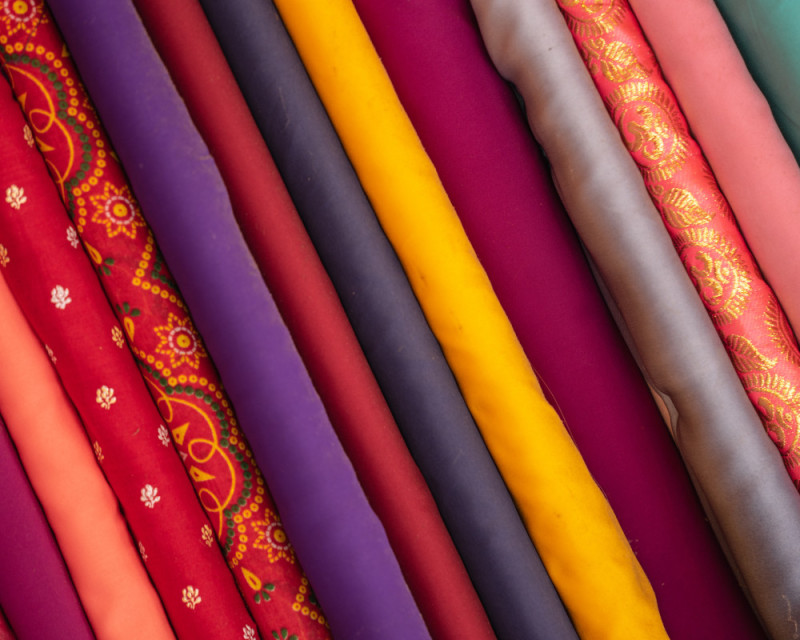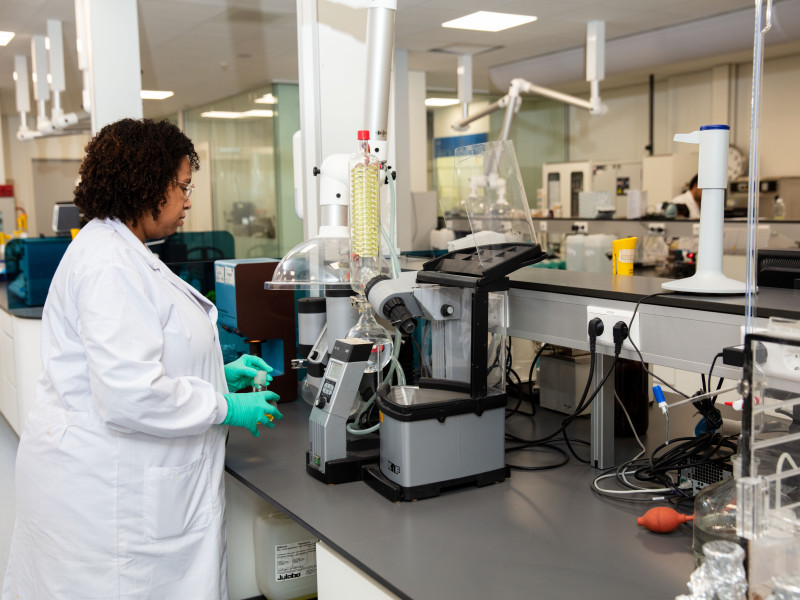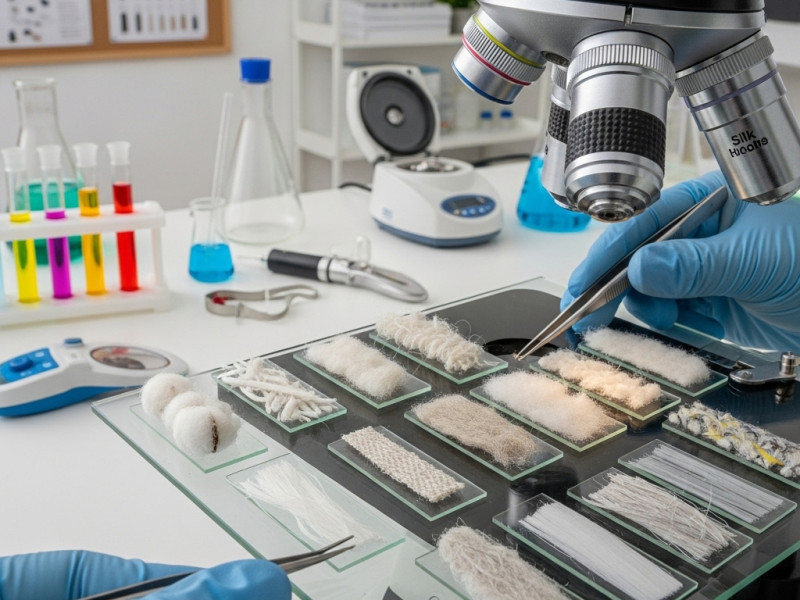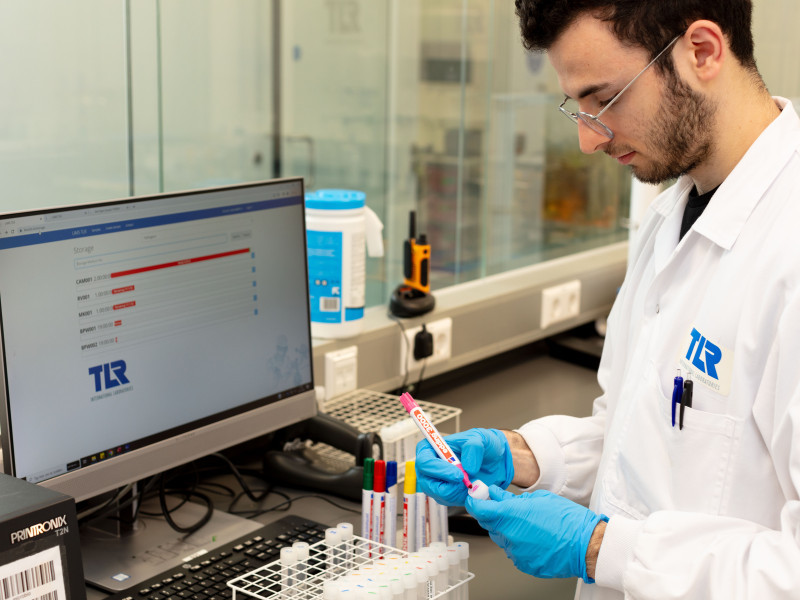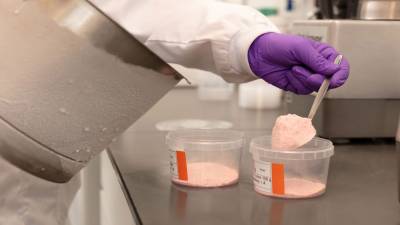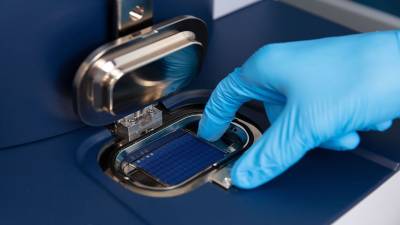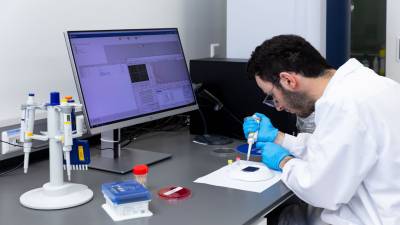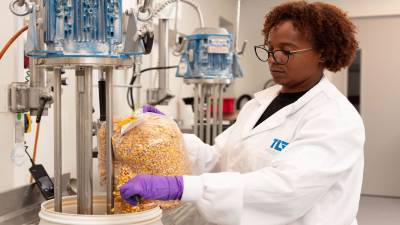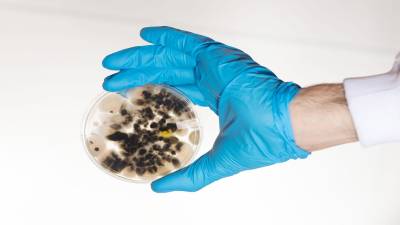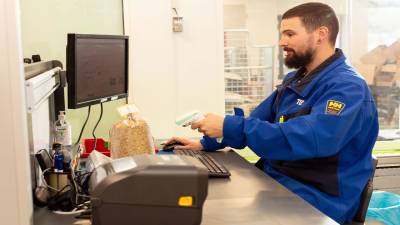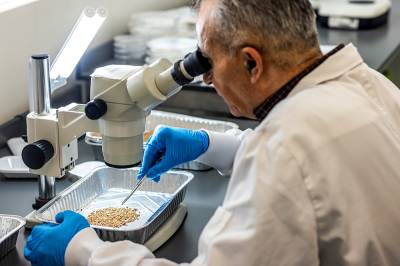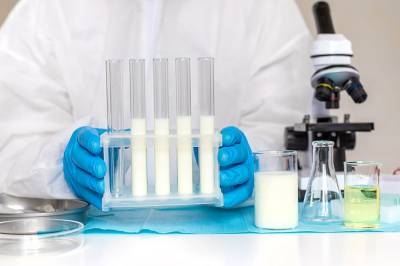Textile Analyses for GOTS Certification: Focus on GMOs, Pesticides, and Dyes
The Global Organic Textile Standard (GOTS) is the world's leading standard for processing organically produced fibres, with strict ecological and social criteria. Laboratory support is essential for certification-particularly in contamination control. TLR International Laboratories assists textile companies in meeting GOTS requirements with analytical evidence.
GOTS Certification and Analytical Requirements
GOTS sets specific conditions regarding the use of raw and auxiliary materials in textile production. Laboratory analyses must demonstrably prove that textile products are free from:
- Genetically modified organisms (GMOs)
- Harmful pesticide residues
- Prohibited synthetic dyes
These parameters are tested per batch or on a sampling basis, depending on material type and origin.
GMO Testing in Cotton and Bast Fibres
Textile products made from cotton or flax are regularly screened for genetically modified components. TLR performs DNA-level PCR analyses in accordance with relevant EURL and ISO methods. Under GOTS, only GMO-free raw materials are permitted. Samples are extracted, purified and tested for markers such as MON89788 (soy) or GTS40-3-2 (cotton).
- Technique: Quantitative PCR
- Detection limit: ≤ 0.1% GMO DNA
- Application: Raw cotton, yarns, finished textiles
Pesticides: Multi-Residue Analysis
Pesticide residues are a known risk in the GOTS supply chain, especially in conventionally grown cotton or shared production lines. TLR analyses a wide spectrum of pesticides (e.g. organophosphates, carbamates, neonicotinoids) using GC-MS/MS or LC-MS/MS, in line with EU matrix guidelines.
- Matrix: Cotton fibres, yarns, fabrics
- Limit: < 0.5 mg/kg for individual residues (GOTS specification)
- Sampling: Minimum 50 grams representative material
Synthetic Dyes: Prohibited Components
One key GOTS criterion is the absence of harmful or prohibited dyes, including:
- Azo dyes releasing aromatic amines
- Synthetic pigments containing heavy metals
- Prohibited disperse dyes such as Disperse Orange 37
TLR performs LC-MS/MS screening for these components, focusing on identification and quantification.
Accreditation and Quality
All GOTS-related analyses at TLR are conducted under ISO 17025 accreditation (RvA L059). This ensures reproducible, internationally recognised results-essential for export-oriented textile producers and importers.
GOTS WebsiteMeld je aan voor de laatste tips en adviezen dat je gelijk in de praktijk kunt brengen.

